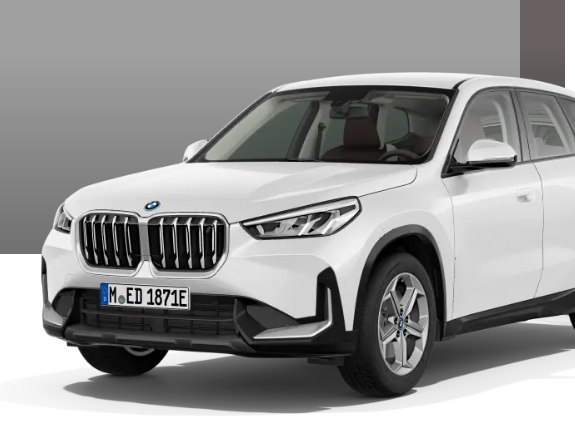

Electric car buying guide

With many new electric models confirmed to arrive in the UK over the coming year, the future promises to be an exciting one for electric car buyers in 2021 and beyond. Buying an electric car is now a real option for a large number of UK motorists.
This buying guide provides an overview of the key issues to consider when looking to buy an electric vehicle, which includes whether an EV is right for you, the availability and choice of electric models, and the impact on vehicle ownership and running costs.
Who should buy an electric car?
There are three key elements to consider that determine whether a pure-electric car is suitable for you: Do you have access to off-street parking? Is your daily mileage under 200 miles? And are you looking to buy a new, nearly-new, or used car?
Firstly, access to a garage, drive or other off-street parking area is the easiest way to run an electric car, as it allows drivers to safely charge overnight – the most common form of recharging method. Research suggests that around 80% of UK car-owning households already have access to a garage or other off-street parking facility (<50% urban, 70% sub-urban, and >95% rural). Those that do have access to off-street parking can likely get help towards the cost of a fully-installed EV charge point at home, though the proliferation of public charge points in many areas of the UK means that off-street parking isn’t the necessity it once was.
While it is never advisable to trail an electric cable across pavements or other public areas to connect a car parked on-street with your household electricity supply, if on-street parking is the only possibility, all is not lost. Government funding allows householders to apply for a public on-street charge point close to where they live. Interested homeowners should contact their local authority who can apply for funding on their behalf and manage the installation.
Secondly, your typical driving mileage is ideally somewhere between 150 and 250 miles per day. This depends on the EV you are looking at, with older models reducing that figure to 100 – 150 miles, and newer, premium EVs seeing that rise to 300+ miles. Regular routes that are familiar – commuting for example – are well suited to electric cars – around two-thirds of commuting trips are less than 10 miles and, most significantly, they are routine journeys for which the driver knows what to expect with respect to distance, route, congestion, road conditions, parking, and charging.
Thirdly, there are no bargain-basement EVs on the market yet, so you will need to have a budget of around £5,000 at a minimum really to afford one. The electric vehicle market is still fairly young, and only now are we seeing EVs on the used car market that are more than five years old. As such, EVs still command a small premium over conventionally-powered vehicles, because of their relative scarcity. Factor in the significantly reduced running costs though, and they easily still make financial sense.
Most EV buyers will be looking at new or nearly new models, though the EV premium is still applicable here. Build costs are tumbling for EVs however, so prices are coming down all the time despite driving ranges improving. It means EVs are offering increasingly good value for money, and are practical propositions for a large number of new car buyers.
What models are available now?
Mass-market EVs have been available for around 10 years or so, with significant increases in available models over the past two to three years. Not only has this improved choice, it has also seen a drive in increased driving ranges and reduced vehicle prices, while recharging infrastructure has been – and is continuing to be – developed across the UK.
Models such as the Renault Zoe, Nissan’s Leaf and the BMW i3 have played a significant part in introducing EV motoring to the public, proving that reliable cars from major manufacturers can be a viable alternative to conventionally-fuelled vehicles.
These have been regularly updated over the last couple of years, and are joined by a large number of newer models from key manufacturers – both mass-market and premium brands. Search for available electric models
The cost of buying an electric car
In general, electric vehicles are more expensive to buy than their petrol or diesel equivalents. However, the Plug-in Van Grant subsidizes the purchase of eligible vans.
Grant rates for the Plug-in Van Grant are £5,000 for large vans and £2,500 for small vans, with a limit of 1,000 per customer per year.
After announcing on 14th June 2022 that it had closed the Plug-in Car Grant scheme to new orders, in October 2022 the government reinstated the Plug-in Car Grant due to continuing delays in manufacturing supply chains. The grant applies to all-electric car orders placed between 14th June 2022 and 31st March 2023, with the same terms as before:
Plug-in Car Grant levels provide up to £1,500 off the cost of a new Category 1 model – essentially pure-electric models or range-extended EVs meeting the criteria – for models costing up to £32,000.
Category 1: CO2 emissions <50g/km and a zero emission range of at least 70 miles
Category 2: CO2 emissions <50g/km and a zero-emission range between 10 and 69 miles
Category 3: CO2 emissions of 50-75g/km and a zero emission range of at least 20 miles
Both private car buyers and fleets are eligible to receive the grants, which are administered by the Office for Low Emission Vehicles (OLEV) – no application forms are required as the dealership completes all the necessary paperwork on the buyer’s behalf, with the grant automatically deducted from the vehicle price at the point of purchase.
As EVs tend to have a high purchase price but low running costs, leasing may be a better proposition for some. It provides a clearer monthly cost for comparison against conventionally-fuelled models and builds in access to newer, significantly upgraded models in a few years’ time.
Electric car running costs
Three significant financial incentives significantly reduce the costs of running an electric car or van: Zero-rated car tax (Vehicle Excise Duty); Zero-rated fuel tax (electricity also only attracts 5% VAT for private use); and incentives for company car drivers are the key elements, though exemptions on the Ultra Low Emission Discount Scheme (ULED) and Congestion Charge are considerations for those regularly driving in central London.
While electric vehicles may be a little more expensive to buy or lease, pure-electric cars and vans are the only vehicles exempt from Vehicle Excise Duty (‘car tax’). The current VED system has put a greater emphasis on zero-emission electric vehicles, with nothing to pay for the First Year Rate or Standard Rate.
Greater focus was put on pure-electric cars in the Budget 2020 announcements. Here, it was revealed that pure-electric cars would not only be exempt from First Year and Standard Rates, but they would also now be exempt from the Premium Rate applied to models costing £40,000 or more. Before this announcement, all models costing more than this threshold were charged the Premium rate, electric or otherwise.
Fuel costs are also very low due to the competitive price of electricity (fuel duty is zero-rated) and to the high efficiency of the vehicles themselves – fuel costs can be as low as 3p per mile (depending on tariff). For an annual mileage of around 10,000 miles, switching from a conventional to an electric car or van could save you around £800 in fuel costs alone. To see how much you could save in fuel bills compared to petrol or diesel cars, visit our Fuel Cost Calculator.
Electric car charging
As previously mentioned, in most cases, electric vehicles are most suitable for people who have reliable access to EV charging facilities enabling them to charge at home or to charge at work. When traveling further afield, electric vehicle users will need to rely on the growing public charging network.
Public charging networks offer a mix of slow, fast, and rapid charging points operated by either a national or regional network, the largest of which include: bp pulse, GeniePoint, Osprey, Pod Point, Source London, ChargePoint Scotland, and InstaVolt. Once a member, EV users have access to all charge points in networks with which they are registered.
Add a comment Cancel reply
Comments (0)
Categories
- Electric Future (21)
- Porsche Taycan (1)
Recent Posts
About us

Popular Tags
Related posts


Challenges Faced by UK Citizens in Adopting Used Electric Cars










